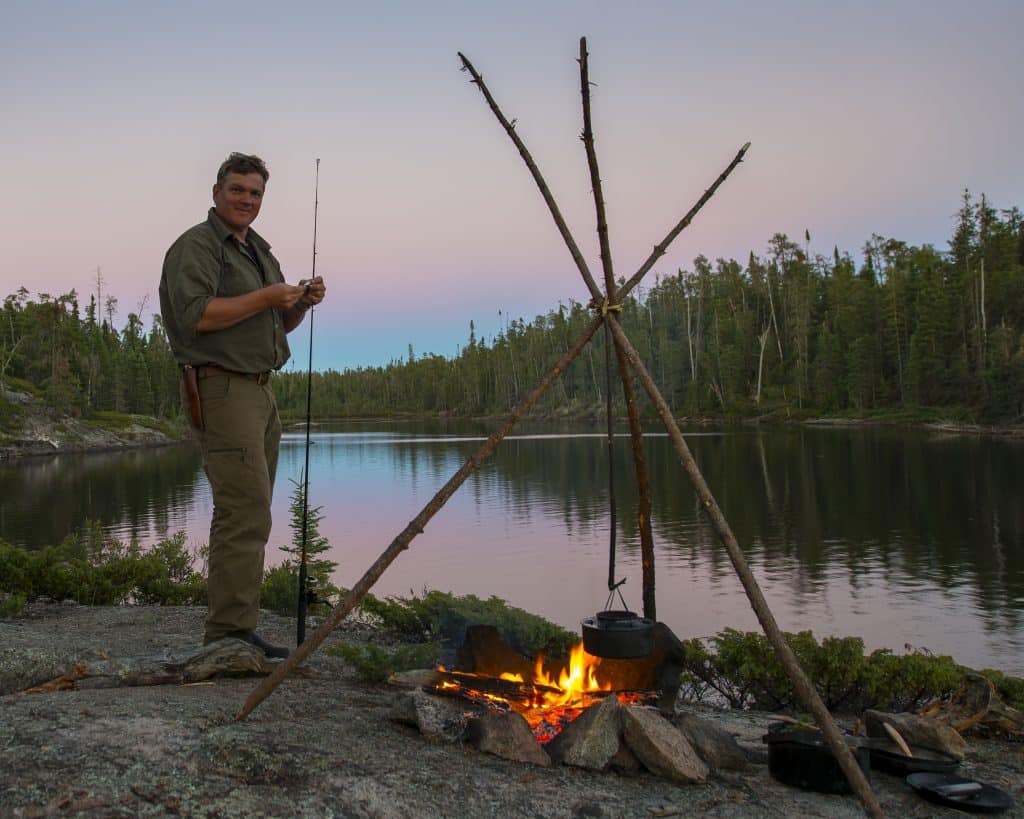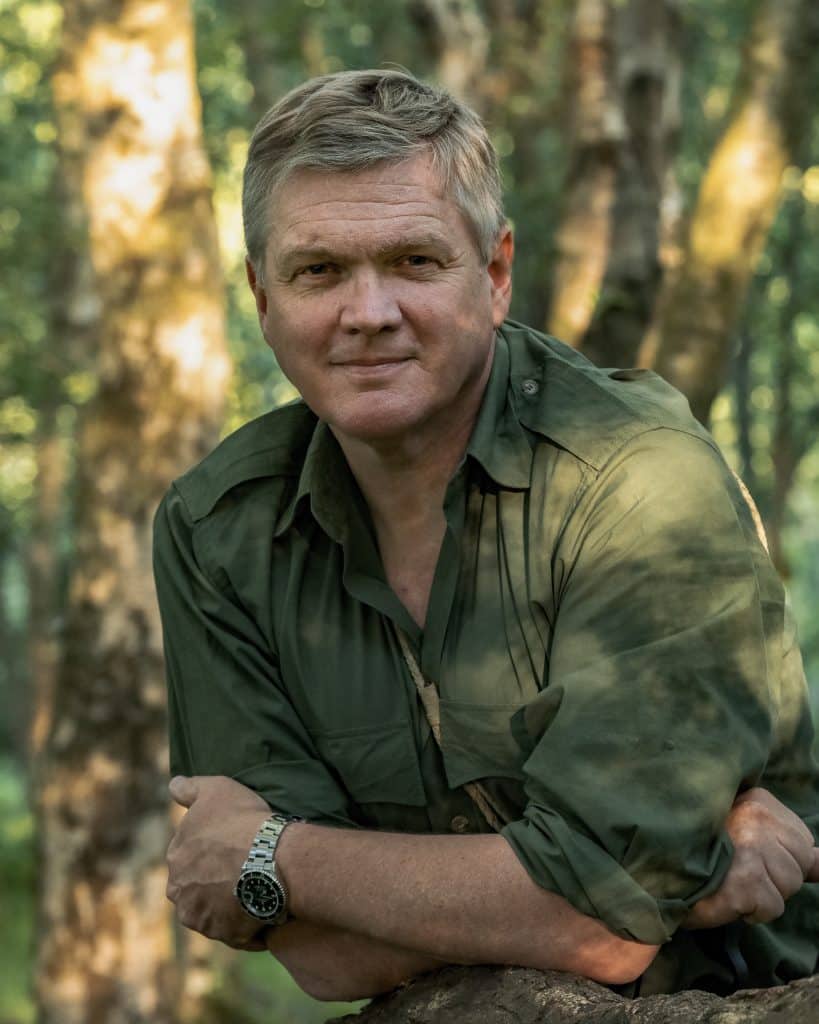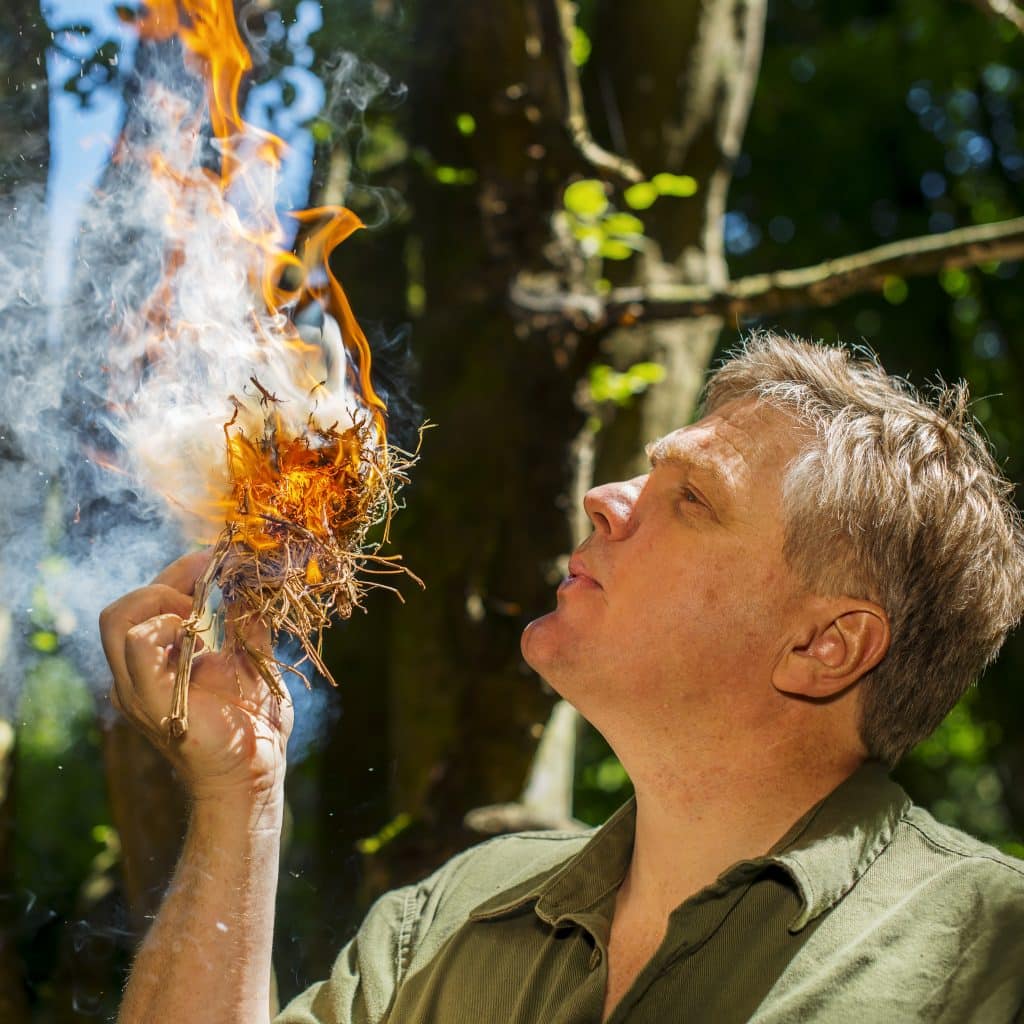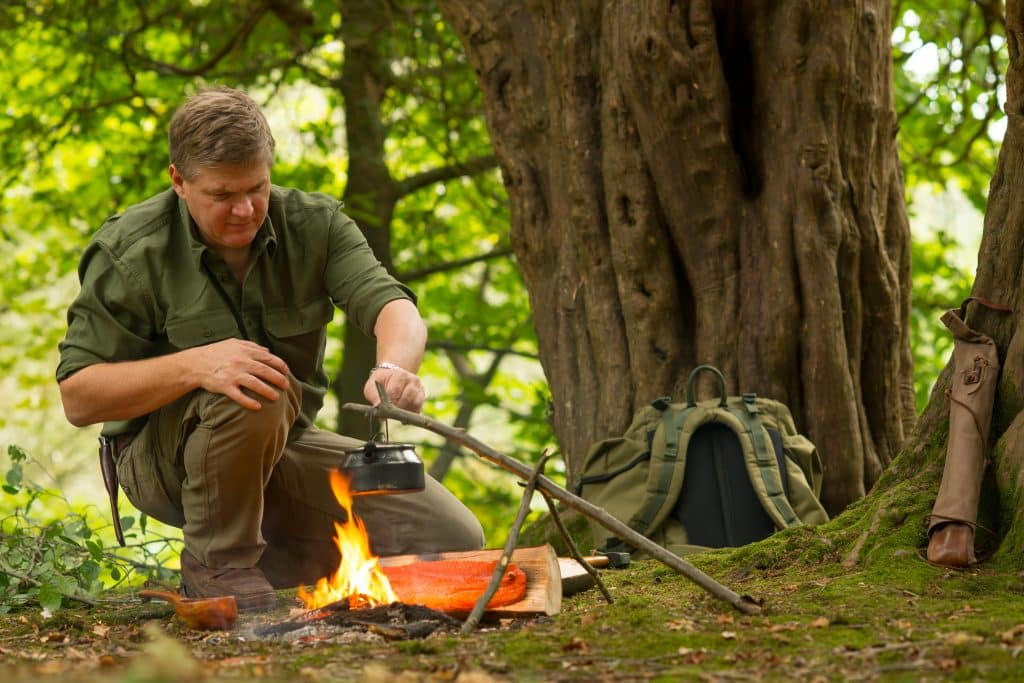In this archival piece from Proper 38, we sat down with Ray Mears during the covid pandemic to discuss changing work routines, climate change, his role as an ambassador for Fjällräven and his latest book, We Are Nature.

There can’t be many of us who haven’t experienced some kind of disruption to our working lives over the last couple of years. For a lot of people, the ramifications were no more than trying to do video calls from home with a ropey wifi signal, offset by the sweetener of not having to commute to the office every day. Well, for international adventurer Ray Mears, the world is his office, so the effects of lockdowns and travel bans had far more of an impact. “It’s been a nightmare,” Ray tells me, “effectively it’s wiped out two years of income.” As you might expect though, for a guy who’s made a career out of survival, it wasn’t a case of sitting around in his boxers watching A Place in the Sun all day.
“I wrote a book called We Are Nature, which may be the most important book I’ve ever written.”
“I wrote a book called We Are Nature, which may be the most important book I’ve ever written and that went really smoothly, so there are some advantages and it was nice to be home.” That’s right, while some of us were congratulating ourselves on doing a couple of Joe Wicks Workouts and winning the odd Zoom quiz with our mates, Ray wrote a book. It’s a timely subject matter too, offering a journey of discovery through our natural world and showing us how to better understand our place within it.
Climate change and our relationship with the natural world is a topic that is rarely far from the headlines these days. Having thoroughly explored the four corners of the globe, Ray must have seen the effects first hand?
“Global warming is definitely happening. Long before global warming was on the news agenda I was aware of it from talking to First Nations. I’ve seen it myself in the north, in the Arctic, changing weather patterns, weather patterns that are now less stable than they were.” You may be forgiven for thinking that the climate becoming a couple of degrees warmer might make polar exploration a bit easier. Far from it. “If you’re travelling in the Arctic in winter, temperature is everything and what you really want is really quite cold temperatures. Warming temperatures bring a lot of problems in terms of security on the ice and in the snow.”

So with this being the Recovery issue, how do we get things back on track? Ray’s assessment is stark. “Is it too late? I don’t know, I’m not imbued with that knowledge or expertise. Is it a crisis? I share the opinion of the climate scientists that it is. It’s something we do need to address. It’s one of many problems we need to address.”
Sobering stuff, for sure. But it’s something we’re all becoming more aware of and the issues of sustainability and corporate responsibility are increasingly informing the decisions we make. In our world of fashion, outdoor and sport, I suspect brands that don’t put these concerns front and centre over the next few years (if they’ve not already), will quickly fall by the wayside. One that leads the way in this regard, Fjällräven, have already signed Ray up as an ambassador. It’s not one of those ‘we pay you, you say we’re dead good’ type of commercial arrangements, however, but a relationship built on a genuine shared ethos. “You’d think that maybe I’d have to wear their gear all the time, it doesn’t work like that. They’re happy for me to be involved and to feedback to them, and I use a lot of their gear anyway.”
Ray is particularly impressed with the way the brand approaches innovation and is doing it entirely for the right reasons. “They are working on developing ecologically sound products voluntarily, before anyone sort of says, ‘you must do this’. They’ve made what looks like a nylon fabric from wood. And it’s totally renewable. I like those kinds of things. If you look at the down they choose for the jackets they go to absolutely the nth degree to ensure that it’s ecologically sourced.”
Now that the world has largely opened back up again, Ray isn’t actually travelling too far afield, at least initially. A UK theatre tour to accompany the new book begins in February next year, but what does that involve, bringing the outdoors indoors?
“Yes it does! It’s about our sensorial awareness. It’s how we can see more, smell more, feel more about nature. How to be more perceptive to what’s going on in the natural world around us. Of all the things I could teach somebody, that’s probably the most important because it literally can be life-changing. You’d be amazed, if you’ve been properly coached, how much more you can gain from nature. You just use your senses better. We have the most amazing ability in a sensory capacity and this tour is about waking people up to this. It’s not just about the outdoors, you can use those skills in everyday life.”

Teaching people about the natural world is not a new endeavour for Ray. Before first appearing on our TV screens in the 90s, Ray founded Woodlore, Britain’s first school of wilderness and bushcraft way back in 1983. He laughs when I ask him what goes on there, perhaps I’ve made it sound like a cult. But it is hugely popular and always oversubscribed. “We teach people how to live in the wilderness, basically. A whole range of courses, from fundamental courses in the UK, to advanced courses in the UK which introduce a broad range of topics to a high degree of technical ability. We run an Arctic course which we’ve done for nearly 30 years now, in the winter, 70 degrees north of the Arctic Circle, which is brilliant. Canoeing expeditions in Canada, which are amazing. We take people trekking in Namibia. We’ve done trips to watch grizzly bears. So, you know, there’s a whole range of things, from the craft, to survival, to how to navigate, first aid, all the fundamental and real skills you need to be safe in big wildernesses.”
Notice Ray says ‘be safe’ rather than ‘survive’. Despite regularly being described as a ‘survival expert’, it’s a title he himself isn’t a huge fan of. Because it suggests the natural world is an inherently dangerous place, which isn’t how he sees it. That said though, he must have found himself in some dangerous situations over the years? “Probably! I can’t remember them. When something like that happens there are several things that occur. Firstly, you don’t have time to be afraid. Unless you have time to anticipate it. Anticipation breeds fear. So when you’re actually confronted with, you know, the ice breaking under a snowmobile or you find yourself suddenly in close proximity to danger, you don’t have time to be fearful. You have to respond. And in those moments, hopefully, your training kicks in and you go into autopilot and just do the right thing.”
These are of course skills which readily translate into day-to-day life for most people, which is why the bushcraft courses and tours are so popular. And Ray is adamant that anyone can benefit. As if to reinforce the point, he offers to take the Proper team out into the wilderness to learn some bushcraft (he obviously thinks we’re a bit soft). I’m tempted to tell him about our wild camp in the Peaks eating curry out of a bag but I decide to leave it. We may just surprise him, watch this space.
Tickets for Ray’s We Are Nature tour are on sale now and the book is available from Amazon and all good bookstores.

